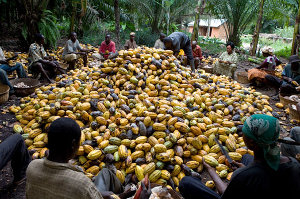 Investors have the opportunity to invest in the production of flowers in Ghana. The country’s floriculture industry is at an infant stage of development relative to Africa’s major flower producers.
Investors have the opportunity to invest in the production of flowers in Ghana. The country’s floriculture industry is at an infant stage of development relative to Africa’s major flower producers.Investment Opportunities
Ghana’s climate, topography, and other natural characteristics make it a conducive location for the cultivation of many exotic breeds of flowers.
Specifically, species such as heliconia, caribea, celocia, curcuma, gladioli and hibiscus have all performed well in Ghana under natural conditions, and there is potential for the expansion of areas under cultivation for these and other cultivars which have yet to be introduced.
Most of Ghana’s current producers possess basic resources – including large tracts of prime uncultivated land, basic technical know-how and an experienced labour force – which can be expanded with capital infusion and technology transfer. The expected growth in the floricultural sector will create and sustain demand for cold storage and freight handling facilities, greenhouse construction, irrigation equipment and construction of small dams.>>>continue>>>





